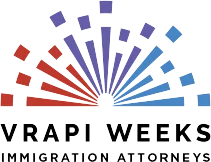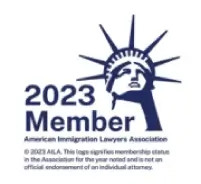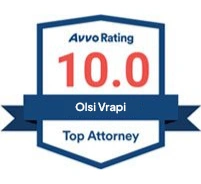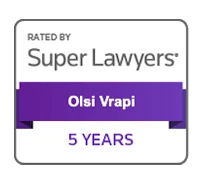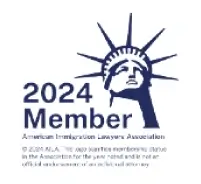The H-1B $100,000 Fee

September 22, 2025
Last Updated October 20, 2025
On September 19, 2025, President Trump issued a Proclamation requiring an additional $100,000 fee for certain H-1B petitions effective on September 21, 2025 (Sunday). While the Proclamation is vague and the guidance issued early on (White House FAQ, USCIS memo, USCIS FAQ, CBP memo) left a lot of unanswered questions, USCIS recently provided an update of what circumstances will trigger the $100,000 fee. This blog will be updated as new information comes to light so please make sure and revisit it.
Who Is Affected?
The $100,000 fee will apply only to new petitions filed on or after September 21, 2025 when the beneficiary does not already have a currently valid H-1B visa stamp and:
- The beneficiary is outside the U.S.;
- The beneficiary is inside the U.S., but does not qualify for a change or extension of status from within the U.S. (i.e. violated status or status has expired);
- The beneficiary is inside the U.S., but the petition does not request an extension, amendment, or change of status, and instead it requests consular, port of entry, or pre-flight notification;
- The beneficiary is inside the U.S., but departs while the petition for a change of status is pending.
Who Is NOT Affected?
This new fee does not apply to:
- Petitions filed or approved prior to September 21, 2025;
- Those who have an H-1B visa issued to them already before September 21, 2025 that is currently valid;
- Petitions for extension of status even after September 21, 2025. and even if the beneficiary has to travel and apply for a visa stamp after petition approval;
- Petitions for amendment of status even after September 21, 2025, and even if the beneficiary has to travel and apply for a visa stamp after petition approval;
- Petitions for changes of status (such as from F-1 OPT or J-1, etc. to H-1B) even after September 21, 2025, and even if the beneficiary has to travel and apply for a visa stamp after petition approval.
Are There Exceptions to this New Rule?
Yes, there are exceptions to this new fee. DHS has discretion to waive the $100,000 payment if:
- The hiring of specific H-1B workers,
- The hiring of all H-1B workers at a particular company, or
- The hiring of all H-1B workers in an entire industry
and
- is deemed to be in the national interest,
- that no American worker is available to fill the role,
- the foreign worker does not pose a threat to the security or welfare of the United States, and
- that requiring the petitioning employer to make the payment on the alien’s behalf would significantly undermine the interests of the United States.
This seems to be a high bar, and the USCIS guidance does state that these exceptions will be granted in extraordinarily rare circumstances. The process for seeking this exception is to email a request and supporting evidence to H1BExceptions@hq.dhs.gov.
What Is Still Unclear?
While the Proclamation and the October 20th USCIS guidance leaves room for a foreign national to enter the U.S. in any other type of visa and then seek a change of status in the U.S., it is unclear how this will play out in practice. The government has warned that it will keep an eye out for potential “abuses” such as by entering in B-2 visitor status and then changing status to H-1B in the U.S.
It is also unclear whether there will be any exemptions of employers that are cap-exempt, such as government, non-profit research entities, or colleges and universities. There have been some news reports that the White House is already considering industry-wide exceptions such as for physicians, but nothing has materialized yet. Stay tuned for more updates.
Litigation Updates
As expected, litigation followed almost immediately after the proclamation was issued.
The first lawsuit was filed on October 3rd. The complaint can be found here: Global Nurse Force v Trump – complaint.
A second lawsuit was filed on October 16th. The complaint can be found here: US Chamber of Commerce v. USDHS – complaint.
While litigation is uncertain, a policy like this will likely not stand up to legal challenges as it blatantly violates numerous statutes, and it tries to do away with longstanding administrative procedure. However, litigation can be slow, so it’s uncertain when we may see results from the courts.
What Should You Do Now?
If you are in the category of “not affected,” you should continue to live your life normally and not take any action items at this point. If you have international travel plans coming up, we recommend postponing or canceling them until we have more guidance/clarity/practice of what this will look like and to give litigation time to work through the court system. For those clients of our firm who are affected by this policy, we will proactively reach out and discuss options. Please be patient and judicious of your attorney’s time since we are being inundated with calls and emails, largely from clients who are not affected by this policy.
How Can Vrapi Weeks Immigration Attorneys Help?
Vrapi Weeks immigration attorneys have a dedicated team of professionals with expertise in immigration matters filed for family members, immigration matters filed by employers, and immigration matters filed by individuals. We handle many types of immigration matters and can assist you with green card applications, work permits, waivers, employment-based visas, and family-based visas. If you have questions or would like for our local attorneys to evaluate your options, please schedule a consultation with our experienced team of immigration lawyers at Vrapi Weeks today.

